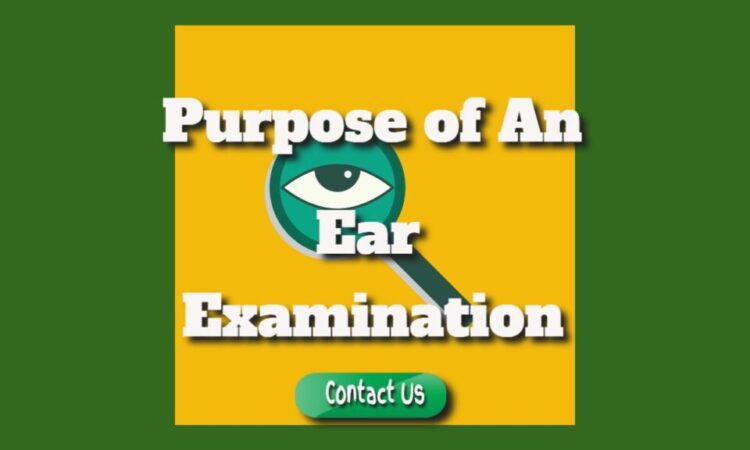
Eye Exams for Boosting Your Child’s Academic Performance
Why Your Child’s Vision Health is Crucial for Academic Achievement
As the school year begins anew, parents often experience a blend of excitement and anxiety about their children’s educational journeys. Amidst the hustle of acquiring new school supplies and embracing fresh opportunities, one essential element that is often overlooked is vision health. Ensuring your child enjoys optimum vision isn’t just a matter of health; it’s a cornerstone of their academic readiness and overall learning experience. Regular eye examinations should be prioritized by parents as they can reveal any underlying vision issues that may impede academic performance. By proactively addressing these potential obstacles, parents equip their children with the confidence to overcome challenges, thus maximizing their educational prospects.

Exploring Parental Emotions and Their Impact on Children’s Academic Goals
The educational journey of a child is often influenced by a complex emotional framework shaped by both past experiences and future aspirations. Parents’ hopes for their children are interwoven with various challenges, fears, and desires, creating an intricate emotional landscape that can significantly shape their approach to learning. While every parent dreams of their child excelling academically, these aspirations are frequently accompanied by concerns about social dynamics and long-term educational outcomes. Balancing these emotions can be daunting; however, it’s crucial for providing the necessary support for children’s educational growth.
To effectively navigate the educational landscape, understanding these emotional dynamics is vital. Parents typically desire more than just strong academic results; they aim for their children to develop into confident, resilient learners who can thrive in diverse situations. We envision a future where children receive tailored, compassionate guidance that respects their unique strengths and needs. Yet, these positive aspirations can often be overshadowed by fears of academic difficulties, social stigmas, and limited educational opportunities.
As we confront these aspirations and anxieties, it’s essential to recognize how these emotions can affect our well-being as parents and influence our children’s educational experiences. Concerns about academic performance, social isolation, or feelings of inadequacy can create an undercurrent of anxiety, impacting our interactions and decisions. Acknowledging these emotions and seeking support can cultivate a nurturing environment for our children, enabling them to thrive both academically and emotionally.
The Direct Connection Between Vision Health and Academic Performance
A common misconception is that possessing good vision equates to having 20/20 eyesight. In reality, visual learning is a complex process that encompasses far more than mere clarity of sight. Effective learning hinges on a variety of visual skills that are pivotal to academic success, yet these crucial abilities are frequently overlooked during standard eye exams.
Visual learning involves a sophisticated range of skills, including eye coordination, the ability to track moving objects smoothly, focusing on varying distances, and effectively processing and retaining visual information. These foundational skills are essential for successful learning but are often neglected in routine eye exams. If these challenges remain unaddressed, they can lead to significant learning difficulties. Thus, parents must prioritize comprehensive evaluations of vision health to unlock their child’s full academic potential.
Identifying Learning Challenges Related to Vision Impairments
Both parents and educators must adopt a proactive approach to identify the subtle signs of vision-related learning challenges. Recognizing these warning signs early can greatly enhance a child’s learning experience, enabling them to reach their full academic potential.
Identifying Reading Difficulties Linked to Vision Challenges
When children struggle to keep their place while reading, it often signals more than mere frustration. If your child regularly loses their place, skips words, or reads significantly slower than their peers, these signs could indicate an underlying vision issue. Such challenges extend beyond basic reading skills, deeply impacting (a) comprehension, (b) self-confidence, and (c) the overall educational experience. Addressing these concerns is vital for creating a supportive and positive learning environment.

Recognizing Physical and Behavioral Signs of Vision Problems
Many parents may be surprised to discover that vision problems can reveal themselves through a range of physical and behavioral indicators. Being vigilant and observant regarding these symptoms is essential:
- Frequent eye strain or discomfort during activities
- Reading materials from an uncomfortably close distance
- Consistent eye rubbing
- Complaints of headaches after reading or during school tasks
- Squinting or tilting their head while attempting to read.
Behavioral Signs That May Indicate Vision Challenges
Children facing vision-related difficulties might exhibit specific behavioral traits that can impede their learning progress.
They may:
- Struggle to recall information from texts they have just read
- Avoid tasks that require close-up work
- Show reluctance to participate in reading activities
- Have difficulty maintaining focus during visually demanding tasks
- Appear easily distracted and disengaged from their learning.
Understanding How Vision Challenges Impact Academic Performance
Vision challenges can have a profound effect on learning outcomes:
- Difficulty following multi-step instructions
- Frequent misunderstandings leading to errors in assignments
- Frustration stemming from underperformance compared to peers
- Poor handwriting that complicates teachers’ ability to assess assignments
- Broader developmental issues that may arise over time.
Furthermore, vision health influences more than academic achievements; it also affects:
- Hand-eye coordination in sports and physical activities
- The ability to track moving objects effectively
- Understanding distances and spatial awareness
- Overall balance, coordination, and proprioceptive skills.
These symptoms can also lead to significant emotional challenges. Children may experience:
- Lower self-esteem due to their struggles
- Frustration from learning obstacles
- Increased doubts about their intelligence compared to peers
- A heightened risk of social alienation or disengagement from their educational environment.
If you observe several signs from this list, it is crucial to take action.
A comprehensive Behavioral Optometry examination can provide insights beyond standard tests, identifying specific challenges that might inhibit your child’s learning potential.

Maximizing Academic Potential through Comprehensive Behavioral Optometry
Traditional eye exams usually focus on visual acuity, primarily evaluating how well a person can see.
In contrast, Behavioral Optometry adopts a holistic approach, assessing the entire visual system and its relationship to learning. This comprehensive methodology provides valuable insights that can substantially enhance a child’s educational experience.
This advanced perspective extends beyond conventional vision testing, necessitating thorough evaluations by specialists who analyze how visual skills impact a child’s learning abilities, information processing, and engagement in educational activities.
By identifying potential challenges early on, Behavioral Optometry plays a crucial role in facilitating a child’s academic journey and proactively addressing issues before they develop into significant barriers.
Proven Strategies for Parents to Enhance Their Child’s Vision Health
To effectively foster your child’s visual health, it is essential to adopt a holistic approach.
Start with a comprehensive Behavioral Optometry examination that goes beyond conventional vision assessments. Choosing specialists with expertise in children’s vision care can provide deeper insights into your child’s visual processing capabilities.
Creating an optimal learning environment is equally important. This includes not only organizing the physical space but also customizing it to cater to your child’s specific visual needs. Consider implementing consistent lighting, ensuring appropriate reading and screen distances, scheduling regular visual breaks, and exploring recommended visual exercises to enhance their overall educational experience.
Effective communication serves as a powerful tool in your parenting arsenal. Engage in ongoing dialogues with teachers about your child’s learning challenges, sharing detailed information to foster mutual understanding. By collaborating to brainstorm supportive, individualized strategies, you can establish a robust support network for your child, greatly enhancing their chances of success.
Long-Term Vision Care: A Strategic Investment in Your Child’s Educational Journey
Investing in comprehensive vision care transcends mere medical necessity; it represents a strategic commitment to your child’s future. Early detection of vision challenges can avert future learning difficulties, bolster academic and personal confidence, enhance emotional well-being, and unlock a world of learning possibilities.
Numerous studies have identified a strong correlation between visual health and academic success. Unaddressed vision issues can severely impede reading speed, comprehension, information retention, classroom engagement, and overall confidence in educational settings. By prioritizing vision health, parents can play an instrumental role in their child’s journey toward academic excellence.
A Encouraging Message for Parents Confronting Educational Challenges
To all parents navigating the complexities of educational struggles: your journey is significant, and support is readily available. Assisting a child through educational hurdles requires a personalized approach; however, with the right resources and strategies, remarkable transformations are within reach.
Considering that over 80% of the information children absorb from their environment is visual, it is crucial for them to process visual experiences effectively to reach their full potential. Delaying attention to vision health can hinder their academic and personal growth.
Schedule a Behavioral Optometry Assessment today to pave the way for your child’s success and fulfillment in their educational journey!
Experience Outstanding Vision Care at Eyes by Design in Kincumber
Connect with the knowledgeable and friendly team at Eyes by Design.
As an independent, family-owned optometry practice operating in Kincumber for two decades, we are committed to delivering exceptional care tailored to your child’s vision needs. Dr. Nick has successfully assisted two generations of children in enhancing their reading and comprehension abilities, both in the classroom and at home.
Disclaimer: This guide is intended to provide informative content only and does not substitute professional medical advice, diagnosis, or treatment. The information provided here is not intended as medical advice; always consult a qualified Behavioral Optometrist, General Practitioner, or similar healthcare provider for personalized guidance.
The Article: Routine Eye Exams: Enhance Your Child’s Academic Success first appeared on https://writebuff.com
The Article Eye Exams: Boosting Your Child’s Academic Performance Was Found On https://limitsofstrategy.com
The Article Eye Exams: Enhance Your Child’s Academic Success First Appeared ON
: https://ad4sc.com










